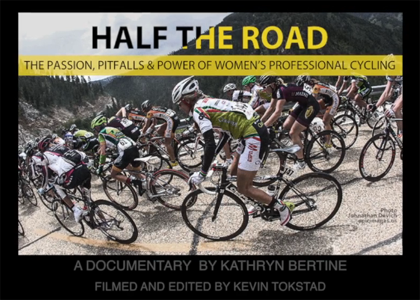Il mental coaching nel Tennis
Offerta di 2 Webinars di psicologia dello sport sul Tennis
La gestione degli errori nel Tennis
Relatore: Alberto Cei
Data: 21 ottobre, ore 19.00-20.15
Durata: 75 minuti
Programma: Questo webinar è dedicato ai tennisti che sanno quanto è dura non spaccare la racchetta dopo l’ennesimo stupido errore e che vogliono migliorare il loro self-control proprio in questi momenti.
La forza di ogni tennista consiste nel giocare al meglio delle proprie capacità.Questo è ciò che conta:
- Giocare come sai
- Impegnarti al massimo su ogni palla
Solo alla fine della partita farai conti e si vedrà chi ha vinto. Pensare al risultato del set o del game serve solo ad aumentare il proprio stress agonistico e a perdere più punti ancora. “Il tennis lo ha inventato il diavolo” ha detto Adriano Panatta perché ti spinge in errore, a pensare, ad esempio, che oggi giochi proprio bene e … di colpo cominci a sbagliare; oppure che vuoi fargliela pagare al tuo avversario con quelle pallette che ti mette sempre lì … e così ti arrabbi e non ne prendi più nessuna. O ancora che vuoi tirare forte la prima, vuoi osare … e ti trovi ad avere difficoltà sulle seconde. Lo stesso ha detto la Pennetta dopo la vittoria con la Williams: “pensavo solo a correre e a buttare la palla dall’altra parte”.
Il webinar è rivolto ai tennisti, ai maestri di tennis, agli psicologi a tutti coloro che amano questo sport bellissimo e così difficile.
Partecipando si acquisiranno competenze su:
- L’errore come parte integrante della partita
- Accettare che vi sono momenti difficili in ogni partita
- Conoscere se stessi: in quali situazione commetto più errori
- Come valorizzare il momento positivo di gioco
- Come uscire da un momento di gioco negativo
- Strategie e tecniche psicologiche per aumentare il proprio self-control
Per corrispondere meglio alle vostre esigenze, inviate tre domande su questo tema a cui vorreste trovare una risposta durante il webinar vi risponderemo.
Riceverai una e-mail di conferma entro 24 ore.
La concentrazione nel tennis
Relatore: Alberto Cei
Data: 4 novembre, ore 19.00-20.15
Durata: 75 minuti
Programma: Questo webinar è dedicato ai tennisti che vogliono migliorare la loro concentrazione durante i game, riducendo i momenti di passività nel gioco e le azioni dettate solo dalla loro impulsività.
Per ogni tennista è necessario sapere riconoscere a cosa presta attenzione durante la partita. Pensa come giocare o a fare i punti? Pensa a correre e a buttare la palla dall’altra parte o pensa che il suo avversario è fortunato? Pensa che oggi è una giornata storta o ragiona, anche semplicemente ma ragiona. Tu che tennista sei?
Per essere concentrati durante gli scambi di gioco è necessario predisporsi a questo impegno durante le pause di gioco. E’ necessario possedere una routine stabile ed efficace che permetta al tennista di essere pronto nel momento del servizio o della risposta. Le pause più lunghe quando si è seduti rappresentano un altro momento importante per ridurre le tensioni mentali dannose, sostituendole con un atteggiamento che predispone al gioco. Verranno discusse le tecniche mentali che possono essere utilizzate in quei momenti per mantenere o ricostruire se necessario una condizione emotiva che valorizzi le proprie capacità di tennista.
Il webinar è rivolto ai tennisti, ai maestri di tennis, agli psicologi e a tutti coloro che amano questo sport bellissimo e così difficile.
Partecipando si acquisiranno competenze su:
- Riconoscere a cosa si presta attenzione durante la partita
- Coraggio, umiltà e tenacia sono abilità mentali decisive per restare concentrati sul gioco
- Come predisporsi a essere attenti durante le pause tra i game
- Come visualizzare le proprie azioni
- Gli esercizi di mindfulness per restare concentrati sul presente
Per corrispondere meglio alle vostre esigenze, inviate tre domande su questo tema a cui vorreste trovare una risposta durante il webinar vi risponderemo.








